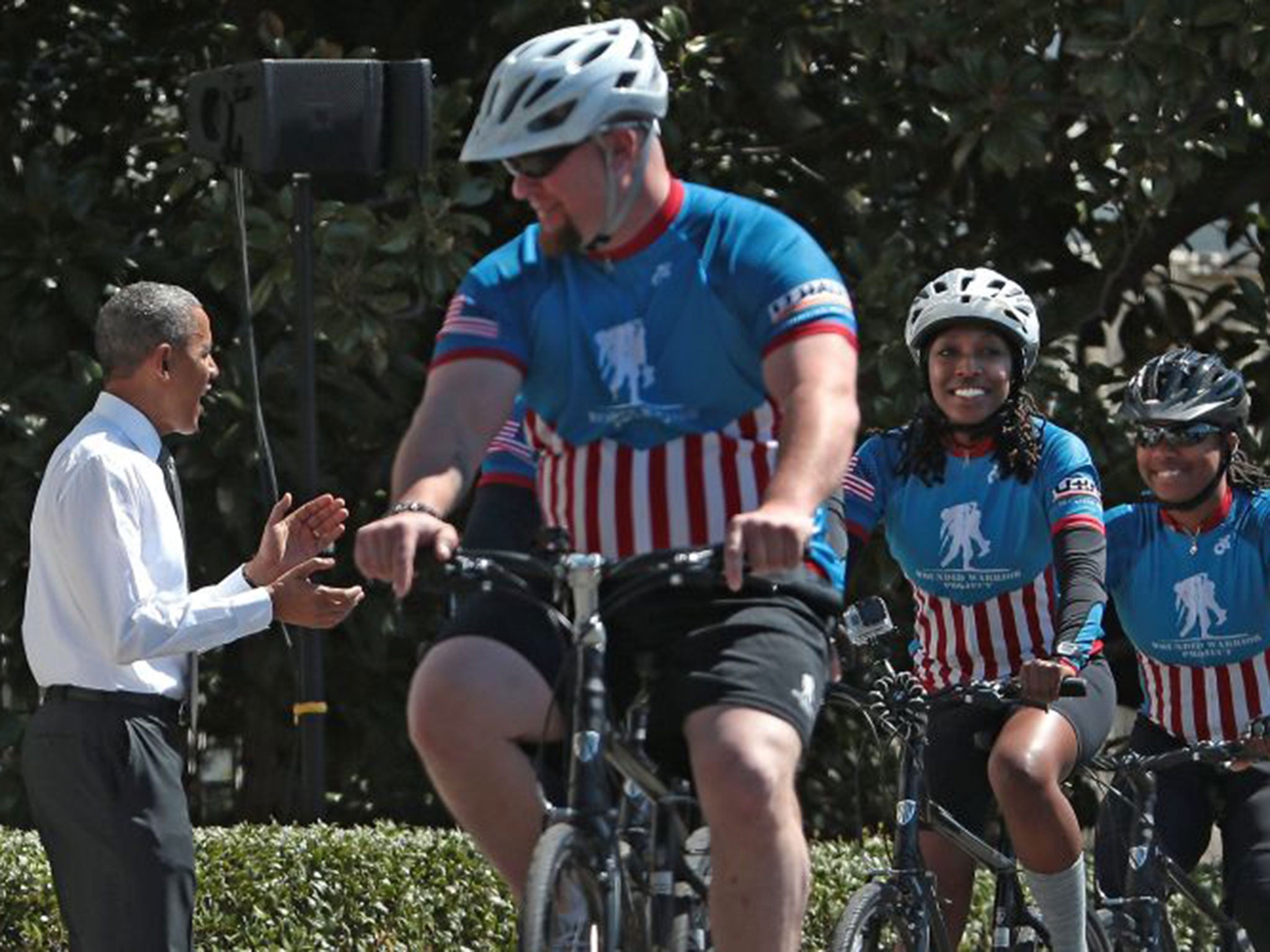Wounded Warrior Project: Employees accuse America's biggest veterans charity of spending donations on parties
Reports claim the organisation spends only about 60% of donations on veterans programmes

The biggest veterans charity in the US has been accused by its own former and current employees of spending too much of the money it raises on parties and events and not enough on helping former soldiers.
The Wounded Warrior Project raised more than $372m (£259m) last year, much of it via small donations from older supporters. But new reports by The New York Times and CBS News suggest the organisation spends only about 60 per cent of donations on veterans programmes, and the remainder on overheads. Other, smaller veterans charities typically spend more than 90 per cent of donations on veterans, according to the US watchdog Charity Navigator.
WWP was founded by US Marine veteran John Melia in 2003, shortly after the first wounded troops began coming home from the Iraq War. Mr Melia, who was injured in a helicopter accident in Somalia in 1992, began visiting military hospitals to hand out backpacks filled with supplies and gifts, such as CD players.
The charity grew rapidly in size and reputation, and its current chief executive, Steven Nardizzi, took over from Mr Melia in 2009. Tax forms show that WWP’s spending on conferences and other events soon increased dramatically, from less than $2m in 2010 to more than $25m in 2014, when its revenue was about $342m. That year, it also spent more than $34m on fundraising and $7.5m on travel, while Mr Nardizzi, a former lawyer, was paid a salary of $473,000.
The New York Times spoke to about 50 former and current staff, including Iraq War veteran William Chick, who worked for WWP for five years until he was sacked in 2012 after a dispute with his supervisor. The charity, he said, “slowly had less focus on veterans and more on raising money and protecting the organisation”.
In 2014, the charity reportedly hosted a four-day, $3m conference for 500 staff at a five-star Colorado resort. Mr Nardizzi made a dramatic opening-night entrance by abseiling down the hotel’s 10-storey bell tower. “He’s come in on a Segway, he’s come in on a horse,” one erstwhile WWP employee told CBS.
“Their mission is to honour and empower wounded warriors,” said Army Staff Sergeant Erick Millette, a decorated Iraq veteran who suffers from post-traumatic stress disorder and spent two years as a public speaker with the charity. “But what the public doesn’t see is how they spend their money. You’re using our injuries, our darkest days, our hardships, to make money, so you can have these parties.”
Wounded: The Legacy of War
Show all 15Mr Nardizzi is an advisory board member of the Charity Defense Council, a non-profit established in 2013 to counter public perception that charities waste money on overheads and executive compensation. In 2014, WWP hired the PR firm Edelman, which has also represented firms such as Shell, Walmart and Starbucks.
Mr Nardizzi told The New York Times that Starbucks and firms like it were the model to which he aspired for WWP – “companies that are getting it right, treating their employees right, delivering great services ... then are growing the brand to support all of that”, he said, arguing that large spending on fundraising and other overheads fuelled the charity’s speedy growth, allowing it to serve more veterans.
The Wounded Warrior Project did not respond to The Independent’s request for comment. Its Director of Alumni, Captain Ryan Kules. denies excessive spending on conferences. He told CBS: “It’s the best use of donor dollars to ensure we are providing programmes and services to our warriors and families at the highest quality.”
The charity, which spends $26m a year on its biggest programme, combat stress recovery, estimates it has served 80,000 veterans. It recently launched a drive to raise $500m for a trust to fund lifetime supplemental healthcare for the most severely wounded servicemen and women.
Subscribe to Independent Premium to bookmark this article
Want to bookmark your favourite articles and stories to read or reference later? Start your Independent Premium subscription today.

Join our commenting forum
Join thought-provoking conversations, follow other Independent readers and see their replies